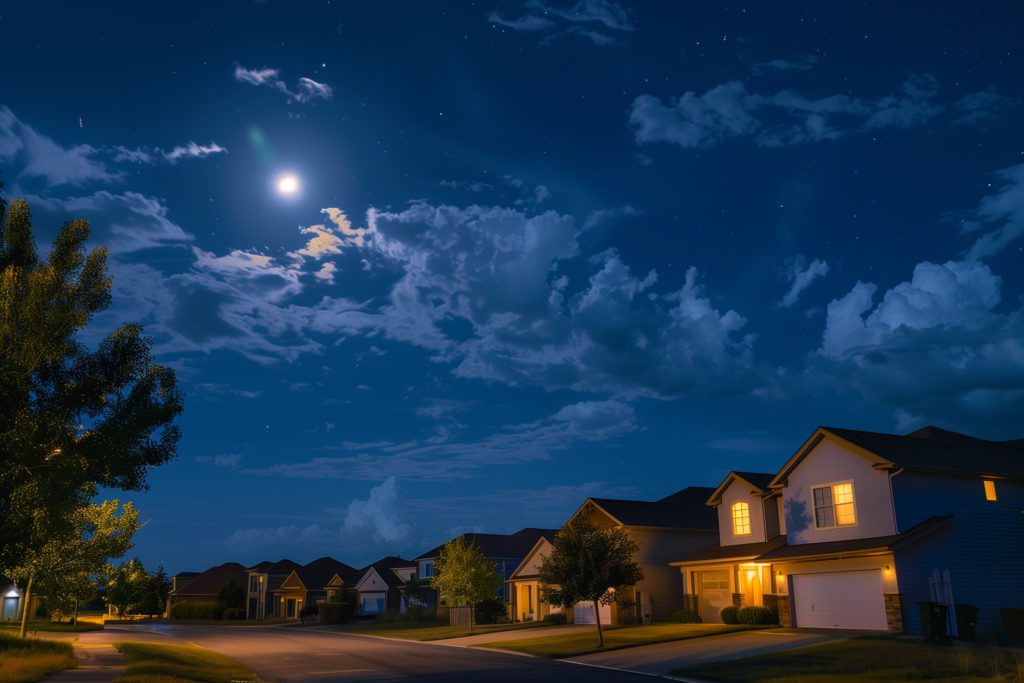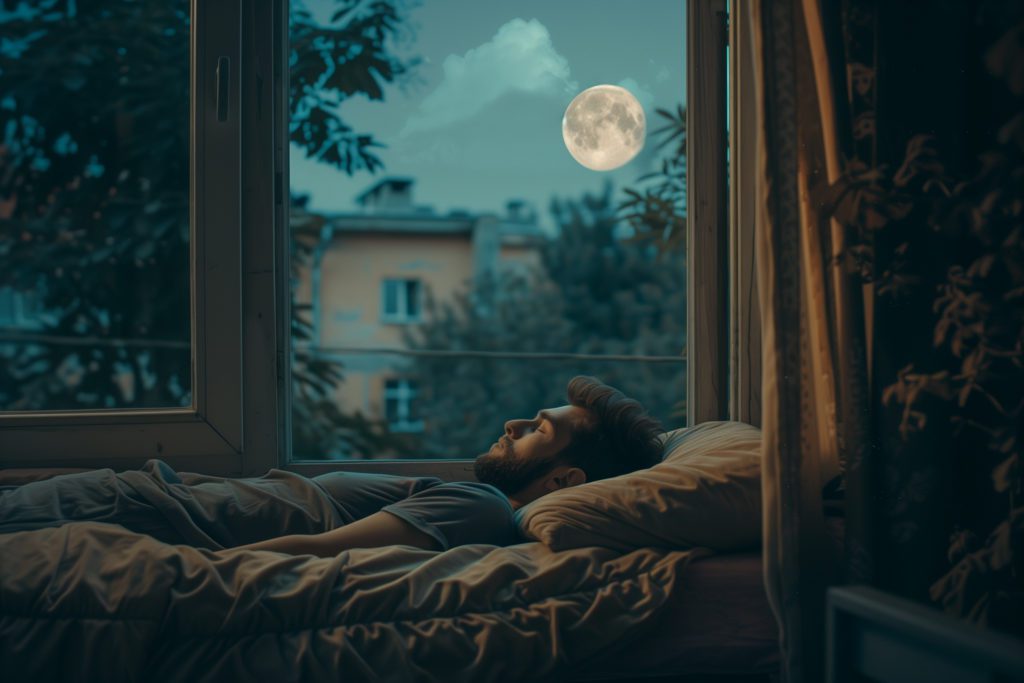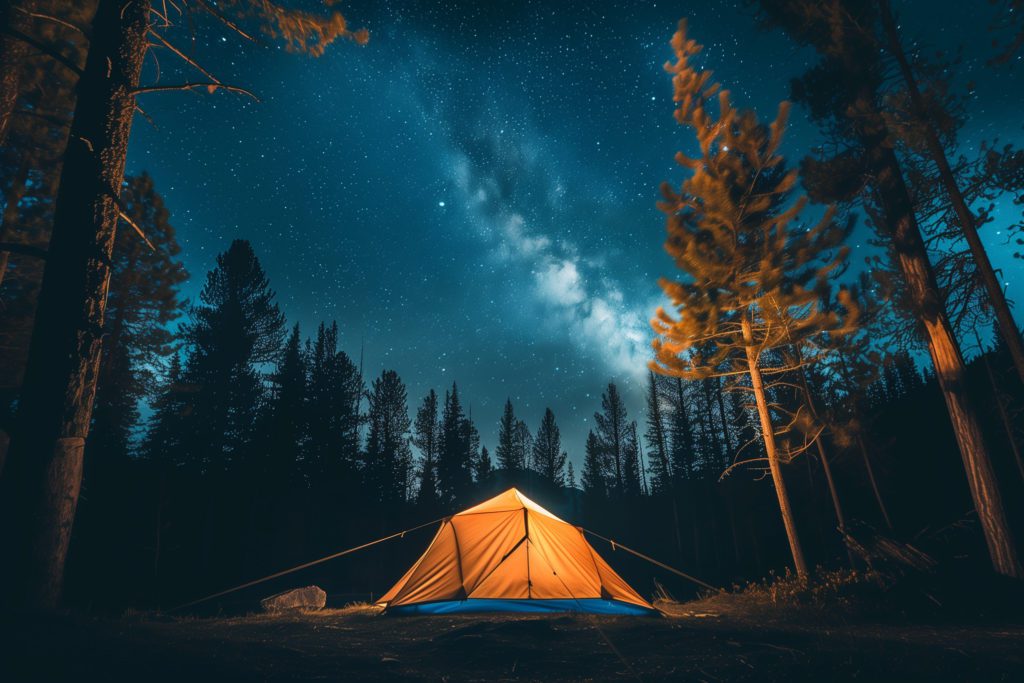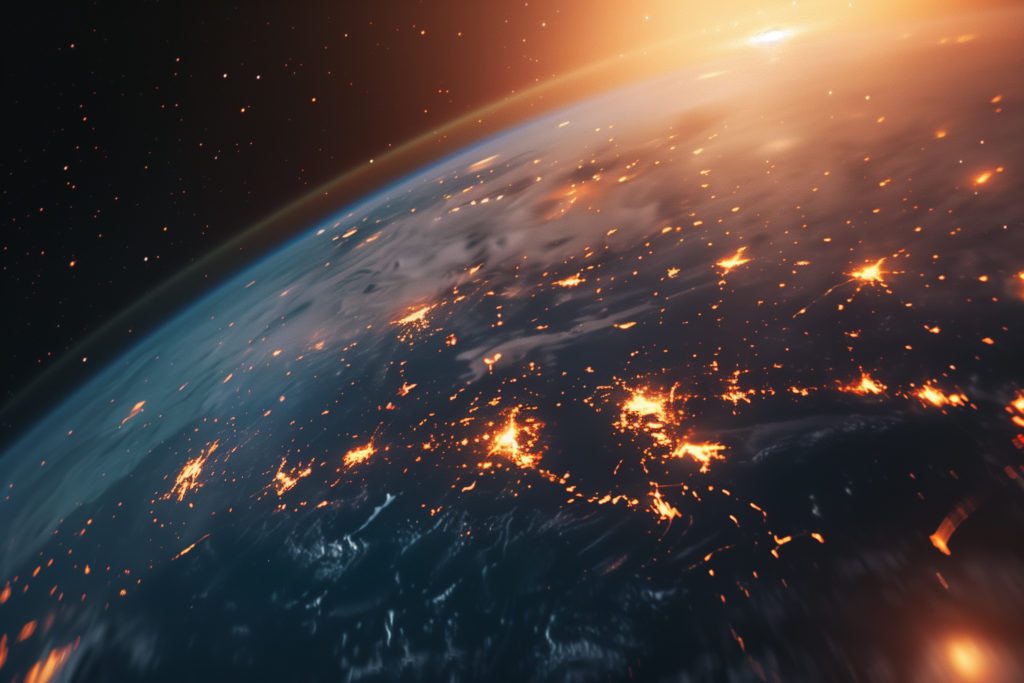
Does a Full Moon Affect Sleep? Myths vs. Facts
We’re separating the myths from the facts so you can discover the real reasons behind full moon sleep disturbances.

The reasons why sleep evades us during the full moon frenzy
Moonlit mysteries aren’t just for werewolves and poets; they’ve also left many wondering why a bright full moon might mean a night of tossing and turning.
While tales of lunar madness and magic have colored folklore across the globe, today we’re venturing deeper, beyond myths into the realm of science. Does the full moon really affect our sleep, or is it all just a combination of lore and placebo effect?
Let’s sift through the science to uncover how and why celestial phenomena might just be more than a backdrop to our dreams.
A closer look at the lunar effect on sleep
You may be wondering: why can’t I sleep during a full moon? The lunar effect hypothesis spins a captivating tale. It claims that the moon’s phases, especially the full moon, might pull on more than just the ocean's tides—they could tug at our sleep, too. While it’s a charming notion, how does it stack up scientifically?
Well, one theory has toyed with the idea that the moon’s gravitational pull, famous for its sway over the seas, might extend its reach to us, mostly water-filled humans. Yet, despite its poetic appeal, science hasn't found any substantial gravitational effects capable of tweaking our sleep patterns.
A more grounded theory suggests the culprit might be the moonlight itself. Back in the day, a full moon meant a flood of natural light at night, enough to throw off our internal clocks. Even today, the extra moonlight could suppress our melatonin production—the body's night signal—making it harder to fall and stay asleep.
This line of thinking is supported by studies noting that people often report worse sleep during the full moon, giving a nod to our luminous lunar neighbor as a natural sleep disruptor. So, while the moon's gravitational pull might not hold water, its spotlight certainly could be keeping us up.
Now, let’s review some of the research
Over the years, numerous studies have tried to connect the dots between lunar phases and sleep quality, with mixed results stirring up an ongoing debate.
Take one intriguing study, for instance. It reported that during a full moon, folks found it tougher to nod off, didn't sleep as deeply, and even saw a dip in their REM sleep—the stage rich in dreams. Interestingly, the participants had no clue what phase the moon was in, hinting at a possibly deep-rooted sensitivity to lunar rhythms that subtly shapes our sleep.
But it doesn't stop at just tossing and turning. There's a study claiming that a whopping 81% of mental health professionals think the full moon can tip people into feeling ill. If that sounds like something straight out of a mystic's handbook, you could be spot-on—the actual scientific backing for such a claim is thin. Skeptics point out that factors like increased light pollution or even our own expectations of a full moon might skew these findings.
Building on what we discussed earlier, some researchers argue that any link between the full moon and our sleep woes could just be coincidental—so more about the extra glow from our lunar neighbor than any mystical pull.
Despite these mixed signals, the conversation about whether the full moon affects our sleep invites us to consider broader environmental influences on our biological clocks, known scientifically as zeitgebers. This ongoing discussion underscores just how tricky it can be to separate folklore from fact and highlights the need for more comprehensive studies to really get to the bottom of these lunar legends.
How to manage sleep during full moon phases
If you find that the full moon disrupts your sleep, whether due to increased light or perhaps a psychological expectation, there are several strategies that can minimize its impact:
Darken your bedroom:
Invest in blackout curtains or use a sleep mask to block out any extra light that might be spilling in during a full moon. Creating a dark environment can help signal to your body that it's time for sleep, regardless of the lunar brightness outside.
Maintain a regular sleep schedule:
Stick to a consistent bedtime routine even during a full moon. Going to bed and waking up at the same time each day can help reinforce your body’s internal clock and make you less susceptible to external disruptions like moonlight.
Limit exposure to blue light:
In the evenings, especially on nights when the moon is at its brightest, avoid screens from devices like smartphones, tablets, and computers. The blue light emitted can further interfere with your melatonin production. If you need to use these devices, consider settings or apps that reduce blue light exposure.
Create a pre-sleep ritual:
Engage in calming activities such as reading, meditating, or taking a warm bath before bed. These can help relax your mind and body, making it easier to fall asleep even when external conditions are less than ideal. And no, it doesn’t have to involve crystals!
Stay cool:
Sometimes, the full moon can be associated with warmer weather, especially during summer months. Ensure your sleeping environment remains cool, ideally around 65 degrees Fahrenheit (18 degrees Celsius), to promote better sleep.
Let’s face it, even if the full moon does stir up a little extra light and lore, with these strategies in play, you’ll be snoozing too soundly to notice. Here's to mastering the art of sleeping deeply, no matter what phase the moon is in!
Does a full moon impact your sleep? Track it to find out!
We've explored both the mystical allure and the scientific scrutiny surrounding the full moon's influence on sleep. Now, why not become your own researcher in this celestial experiment?
Whether you're curious about the moon's storied impact or rely more on data-driven evidence, tracking your sleep during different lunar phases can offer personal insights. As the next full moon approaches, tracking your sleep with an app. Note any changes in sleep quality, duration, or disturbances, and keep a diary of how you feel each morning—this can help you determine if there's more than just brightness keeping you awake.
Embrace the opportunity to explore this lunar mystery firsthand. Maybe you'll discover that the full moon does tweak your nightly rest, or perhaps you'll find it's just another beautiful backdrop for your dreams. Either way, charting your sleep can shine a light on your unique lunar connection—or confirm that for you, it’s all just a bit of celestial charm.

Written by
Georgia Austin
Professionally trained copywriter, editor, and content marketing strategist with over 7 years of experience—working with brands like Nike, Siemens, Toshiba, Tommy Hilfiger, Culture Trip, and Klook.
Download Pillow
Get help
Press & News
Legal
Connect
X (Twitter)
Company
Copyright © Neybox Digital Ltd.



